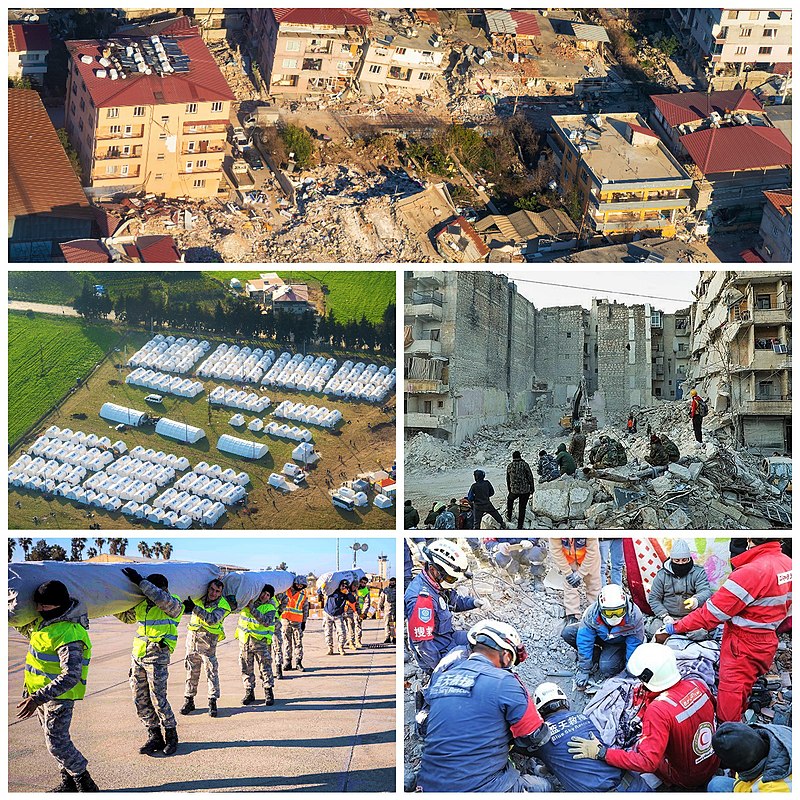 This article is part of keeping up with the humanitarian and political consequences of the devastating earthquake that struck Syria and Turkey at the dawn of February 6th. I am writing this content more than three weeks after the earthquake in Syria and Turkey. Throughout these weeks, whenever I begged myself to sleep, a series of images, scenes, and moments I experienced during the earthquake in Turkey flashed through my head. Sometimes, they all overlap in my head at once, so I can't separate them, or suddenly one of them jumps out without the other, repeating itself dozens of times. In some of them, faces and people are absent and their voice remains, or their voice is absent and their images remain, and in others, voices and faces are cut off. And in miserable times I tried to deceive the cruelest of them to beautify it, to banish it, to make it only a nightmare, and I failed, got up, and had a severe headache.
This article is part of keeping up with the humanitarian and political consequences of the devastating earthquake that struck Syria and Turkey at the dawn of February 6th. I am writing this content more than three weeks after the earthquake in Syria and Turkey. Throughout these weeks, whenever I begged myself to sleep, a series of images, scenes, and moments I experienced during the earthquake in Turkey flashed through my head. Sometimes, they all overlap in my head at once, so I can't separate them, or suddenly one of them jumps out without the other, repeating itself dozens of times. In some of them, faces and people are absent and their voice remains, or their voice is absent and their images remain, and in others, voices and faces are cut off. And in miserable times I tried to deceive the cruelest of them to beautify it, to banish it, to make it only a nightmare, and I failed, got up, and had a severe headache.
Will I die today?
The place: a small room in an old house consisting of three floors in the Mazrlik neighborhood in Antakya. The time: at dawn on Monday, February 6, 2023, at 4.17 am.
My bed shakes, and I wake up, it's not a fleeting little shake that Antakya is used to from time to time, I tell myself. The tremor intensifies, it's an earthquake, I get it. I quickly stand under (the door lintel ) the door of my room, knowing in advance that standing under the doors is a safe place during an earthquake. The earth does not stop shaking and becomes more intense, so I rush out of my room towards (the yard) of the house in front of it, I fall, swaying right and left, with difficulty getting up, and the shaking becomes more violent, will I die today? I talk to myself, and my neighbor Fatima and her husband, who live on the first floor of the house, come to my mind. I scream" Fatima Fatima" I see her and her husband go out to the (yard) of the house, without covering her head screaming like crazy, then I see my neighbor, his wife, and two daughters who live on the second floor, and the young daughter of the owner of the Turkish house “Dilay” who lives on the third floor, they all go down to the yard of the house, all of us Fine, we hold each other and go out into the street, the ground is still shaking, we all stand up and I embrace Dilay.